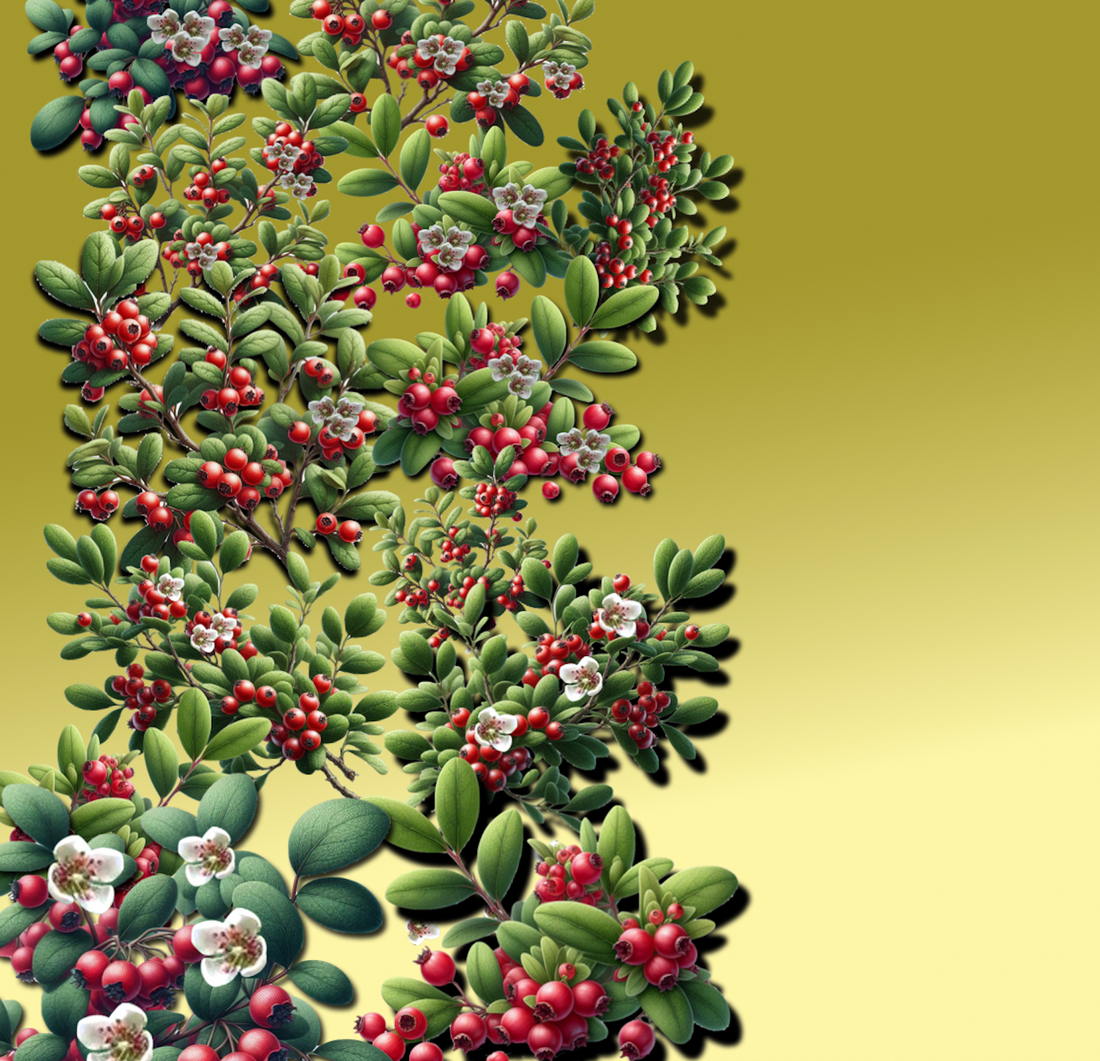
The benefits of bearberry
Share
Bearberry leaf
Bearberry leaf extract ( Arctostaphylos uva-ursi ) is a plant ingredient with lightening, antioxidant and anti-inflammatory properties.
Bearberry leaf extract is rich in a range of bioactive compounds, including arbutin, tannins, flavonoids and phenolic acids. Arbutin, a natural derivative of hydroquinone, is the main component responsible for the depigmenting effects of the extract. Bearberry also contains flavonoids, such as quercetin and myricetol, which give the extract its antioxidant and anti-inflammatory properties. In addition, the tannins present in the leaf, including ellagitannins, act as astringent agents, promoting skin firmness and tone.
The main benefit of bearberry leaf extract is its ability to lighten pigment spots and even out skin tone. This effect is mainly due to arbutin, a glucosylated compound of hydroquinone. Arbutin works by inhibiting the activity of tyrosinase, a key enzyme in the synthesis of melanin. Melanin is the pigment responsible for skin color and hyperpigmented spots that appear in response to UV rays, inflammation, or hormonal imbalances.
Unlike pure hydroquinone, a powerful but potentially irritating depigmenting agent, arbutin has the advantage of acting more gently while offering a superior safety profile. It gradually releases small amounts of hydroquinone, thus limiting the risk of irritation or unwanted side effects. This makes it a preferred choice for treating pigmentation disorders such as age spots, melasma and sun damage, while minimizing the risk of skin sensitization.
Bearberry leaf extract also has antioxidant activity, mainly attributed to its flavonoid and phenolic acid content. The antioxidants contained in bearberry leaf extract, by neutralizing free radicals, protect skin cells from oxidative damage. In addition to preserving the youthfulness and radiance of the skin, this antioxidant action promotes cell regeneration and strengthens the skin's ability to defend itself against external aggressions. In addition, antioxidant compounds participate in the skin repair process by stimulating collagen production.
The flavonoids and tannins found in bearberry leaf extract also give it anti-inflammatory properties. Flavonoids modulate the inflammatory response by inhibiting pro-inflammatory enzymes such as cyclooxygenase (COX) and lipoxygenase (LOX), which are involved in the production of inflammatory mediators like prostaglandins and leukotrienes. These anti-inflammatory compounds work by reducing redness, irritation, and inflammation of the skin, which may be particularly beneficial for those with inflammatory skin conditions such as eczema, psoriasis, and atopic dermatitis.
Additionally, reducing inflammation indirectly helps prevent post-inflammatory hyperpigmentation (PIH), a common condition where the skin produces excess melanin in response to prolonged inflammation or skin injury. By limiting the inflammatory response, bearberry leaf extract helps prevent the formation of brown spots and residual marks after inflammation.
One of the most important aspects of bearberry leaf extract is its high safety profile. Arbutin, although closely related to hydroquinone, is considered a safer depigmenter, as it releases hydroquinone in a controlled manner and in small amounts. In addition, the presence of antioxidants and anti-inflammatory compounds in the extract improves its tolerability, reducing the risk of irritation, even for sensitive skin.
